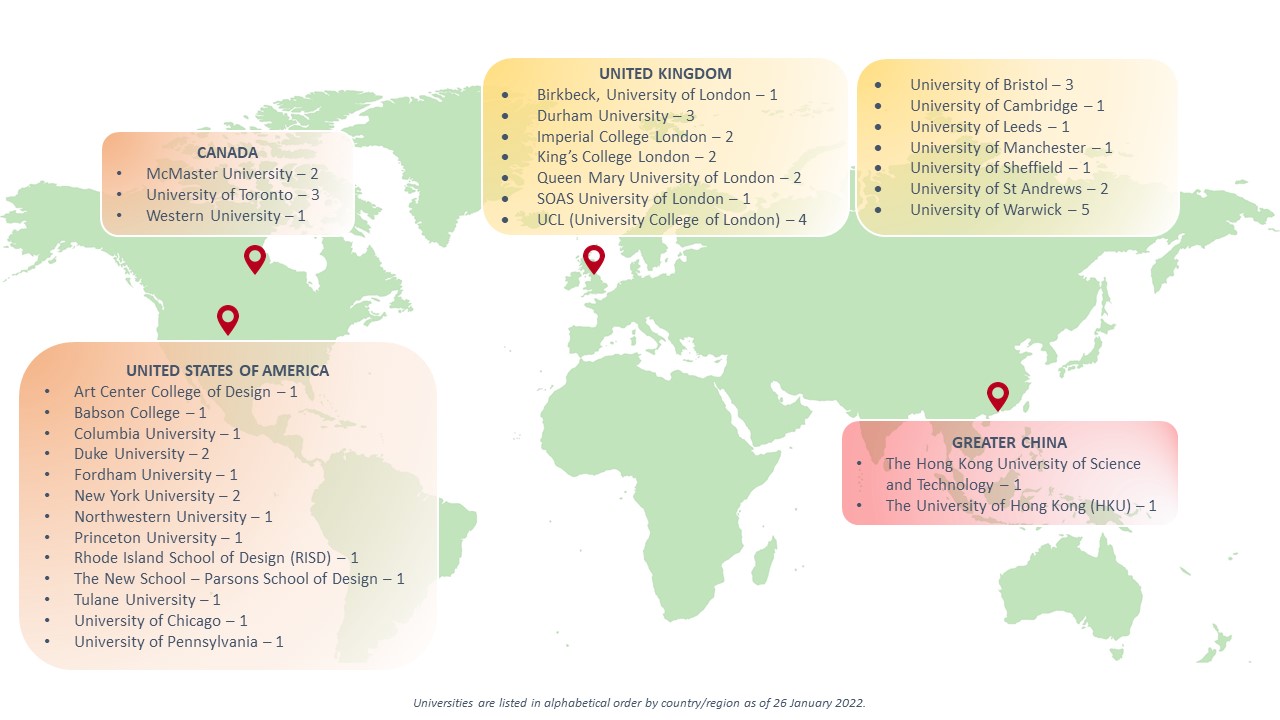DCB celebrates more offers for the Class of 2022!
Today marks an important milestone for our Year 13 students as it is the submission deadline for UCAS (Universities and Colleges Admissions Services). UCAS is the central system for all university applications to the United Kingdom, so it allows students to easily apply for multiple choices. Let’s take a deeper look at how to apply to the UK.
Applicants can select up to five choices to apply: they can choose to apply to one course at five separate universities or can apply for up to two courses at one university. “Course” refers to a full programme of study in the UK, similar to what is called a “major” in the United States. One very important detail about UCAS is that applicants only write and submit one single personal statement. This means that students need to think carefully about which courses to apply to ensure that they are similar enough that a single essay is still effective.
The UK uses qualifications-based admission, which means students are issued conditional offers. Once the final IB results are released in mid-July, the university is able to confirm the exact number of students who will enrol that autumn. Because of the uncertainty of how students will perform on the final examinations, students are able to select a Firm (first choice) and Insurance (second choice) option in May. It is strategically important, however, to make sure the conditions for the Insurance choice are different enough from the Firm in order for it to be a secure backup plan.
The vast majority of courses and universities in the UK simply use the UCAS form (personal statement, letter of recommendation, and predicted grades) to make a final decision. However, some programmes require additional materials, such as a portfolio for Fine Arts or Architecture or an audition for Drama or Music, an interview, or additional testing, such as the LNAT for some Law courses or STEP for certain Mathematics courses. For most UK universities, professors are integral members of the admissions process, unlike in the USA where most admissions decisions are made by full-time admissions staff.
The University of Cambridge has a unique admissions process because of its residential Colleges and Supervisions system. When students apply to Cambridge, they actually are applying directly to one of its 29 undergraduate Colleges and their application is processed specifically by the admissions tutors for that College. Each College has its own hall of residence, traditions, and affiliated professors. Students interested in Cambridge must apply as early as 15 October (or even earlier if students want to try to be interviewed in person in Shanghai). After an initial screening, applicants are notified in late November whether they have made it to the interview round. These interviews, which may include a written assessment, are conversations with professors and are meant to assess an applicant’s intellectual ability and academic potential. The most difficult part of these interviews is having the correct mindset: it is not about having the correct answers, but rather demonstrating that one has a flexible, agile mind and a willingness to be taught.
We are incredibly proud of our students for their effort, dedication, and growth during this application cycle. Through the process of applying for university, they have become even more equipped to succeed in their future studies, wherever they choose to go. Here is the list of offers as of 26 January 2022.









